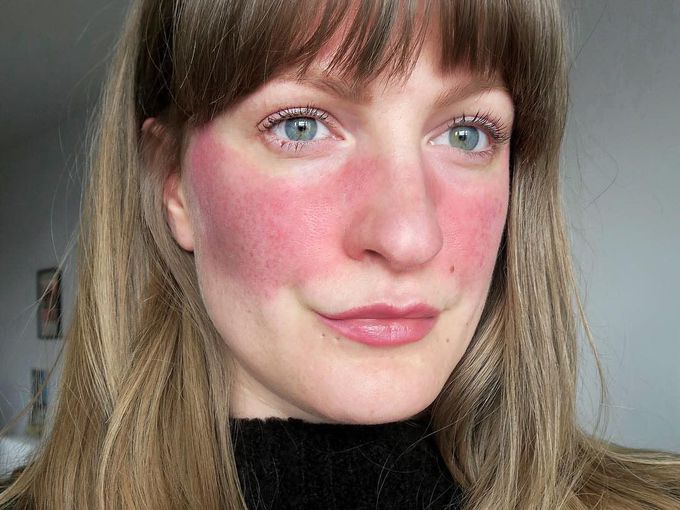


Rosacea!
Rosacea is a chronic condition resulting in reddening of the face (mainly forehead, nose, and cheeks). It appears very similar to acne but unlike acne, it first starts in middle age (between 30 and 50 years of age). Most common skin findings include erythema, telangiectasia, papules, and pustules with redness, typically affecting the face. Unlike acne vulgaris, there are no comedones. In severe cases of rosacea, the skin of the nose can become thickened and greasy, creating a bullous appearance; this is known as rhinophyma and it is mostly seen in men. Symptoms can be reduced by avoiding alcoholic or hot beverages, as well as extremes of temperature, and by reducing emotional stressors. Treatment includes topical metronidazole and systemic antibiotics (e.g. tetracycline). If the patient does not experience an appropriate response, isotretinoin is prescribed for daily use.

